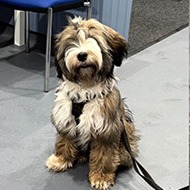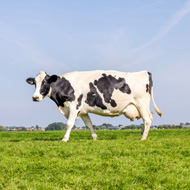Professor Michael Day, chair of the WSAVA's One Health Committee, during a visit to India.
Influenza outbreak in India is causing pet owners concern
The One Health Committee of The World Small Animal Veterinary Association (WSAVA) has issued an advisory notice to help veterinary surgeons in India educate their clients about the risks of disease transmission between pets and humans.
The country is currently experiencing an upsurge in the occurrence of human pandemic A (H1N1) 2009 influenza virus A infection. Over 300,000 cases have been reported in the outbreak so far, with almost 2,000 people having lost their lives.
The outbreak is causing concern amongst many pet owners, who are starting to question whether it is possible to contract the infection from companion animals and whether they should give them up to protect their family.
The influenza virus originates from swine, which spreads to people and is now transmitted primarily through human-to-human contact. The cause of the concern stems from studies which have demonstrated that the virus can be transmitted to companion animals.
WSAVA say that some owners are worried about the risk to their pet should a human member of the household contract the virus, but many more are worrying that they might contract the virus from their pet. However, evidence shows that humans are far more likely to catch the virus from an infected person than from an animals.
Professor Michael Day, chairman of the One Health Committee, said: "Protecting human health is paramount but, in reality, the risk to people of being infected with the 2009 H1N1 virus by their pets is extremely small and not a case for relinquishing family pets. On the contrary, we are concerned about the welfare consequences for thousands of animals if their owners turn them out inappropriately."
"We hope our Advisory Notice will be of value to veterinarians in India - and potentially in other countries too - by giving them the information they need to educate and reassure their clients effectively."
Image (C) WSAVA







 The Veterinary Medicines Directorate (VMD) is inviting applications from veterinary students to attend a one-week extramural studies (EMS) placement in July 2026.
The Veterinary Medicines Directorate (VMD) is inviting applications from veterinary students to attend a one-week extramural studies (EMS) placement in July 2026.
